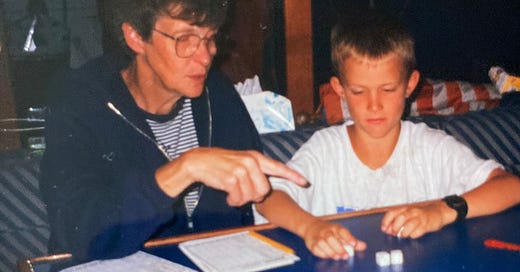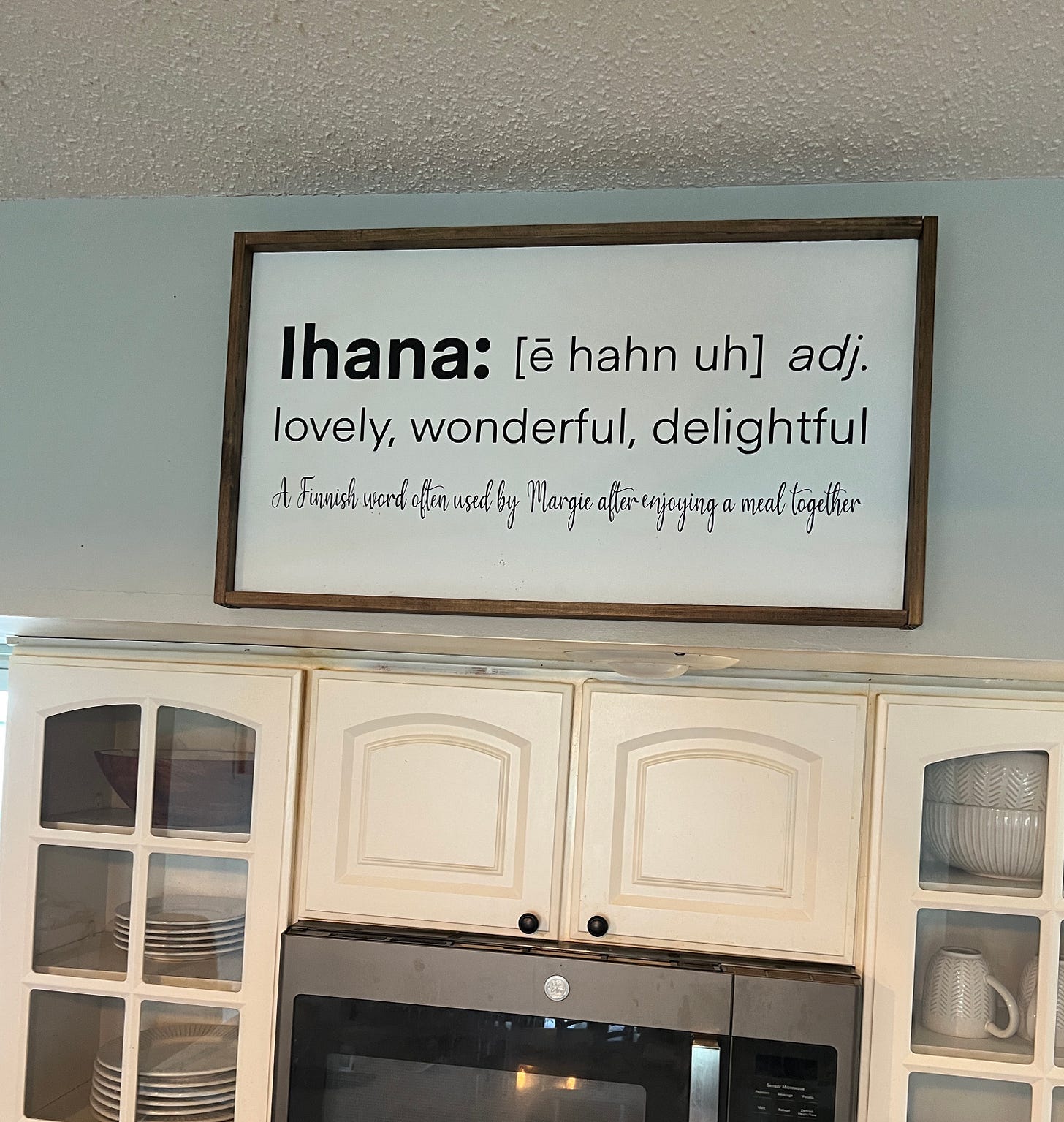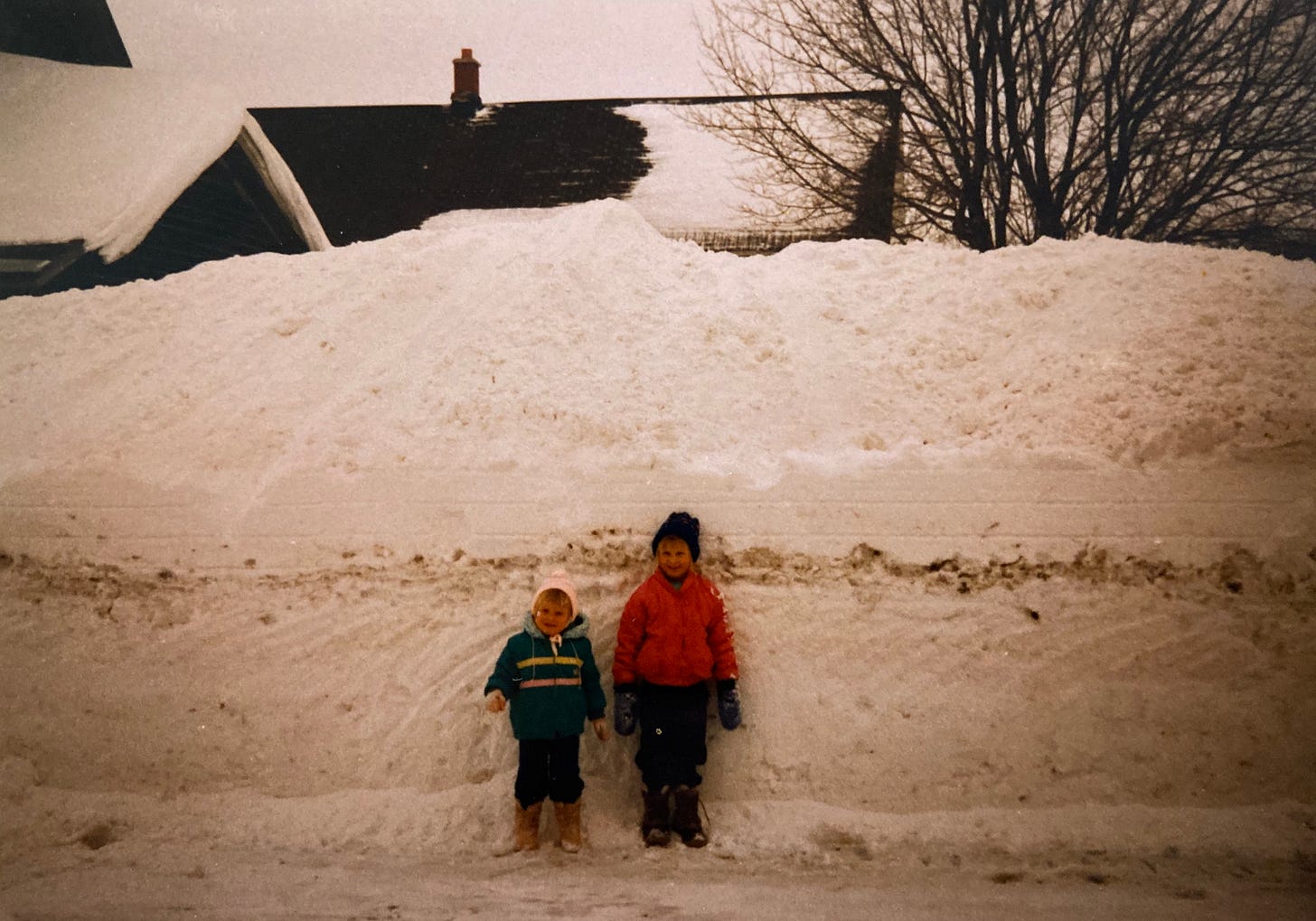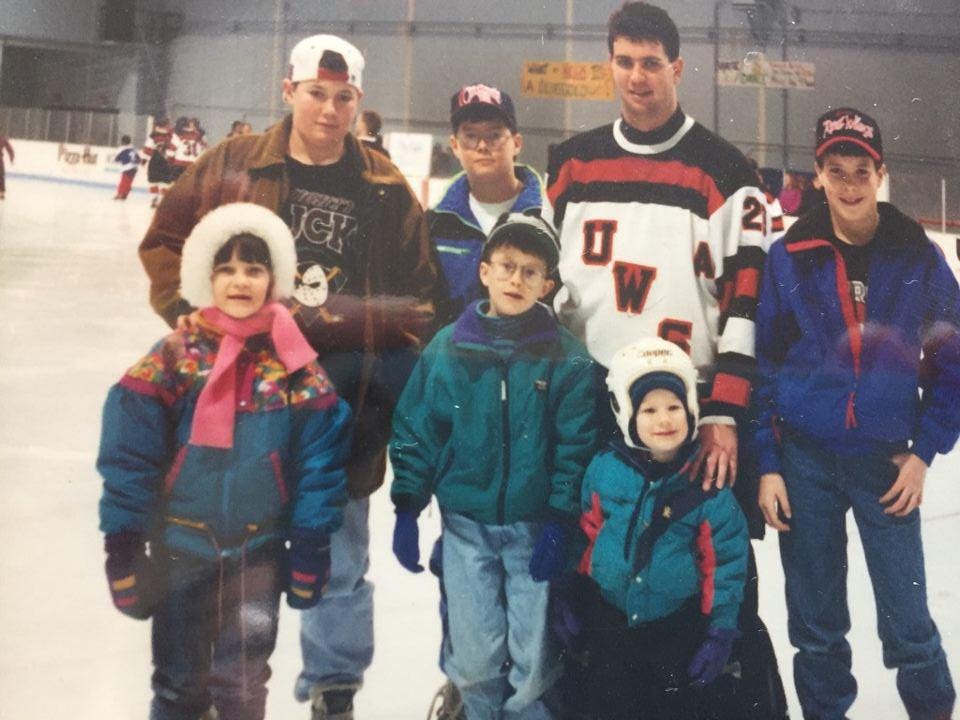Note to readers: I’m currently traveling in South Carolina with Uncles Tim and Jeff, getting tons of quality time, enjoying the wonders of Waffle House, and attempting to stay focused enough to take notes. We’re heading to a country music festival this evening, which is just the type of American cultural immersion I’ve been dreaming of.
Another uncle post will surely be coming soon.
In the meantime, here’s a piece further exploring the unique linguistic quirks of growing up Finnish in the Keweenaw Peninsula.
Similar to the blinders I was wearing with regard to the cultural uniqueness of the religion we grew up in, it occurred to me far too late that it wasn’t typical to have a grandmother who never swore in English but would shout “PASKAHOUSUS!” (pronounced: buska-ho-zoos) when she burnt her finger on a pot of Spaghetti-O’s or couldn’t find a six-letter word that incorporated a “Y” and would hit the triple-point square on Scrabble—my mother says that my grams and her sisters would switch to full Finnish when speaking about sensitive topics on the phone.
So as a child, I thought everyone’s grandma avoided damaging young ears by yelling “shit pants” in Finn rather than saying the real thing.
In the Keweenaw, even locals with English, German, Italian, or any other heritage know the Finnish-isms, and they’re used all over the place.
Like any immigrant community, pieces of our roots got mixed up in our super accented everyday English.
Throughout my entire life, doing a favor for an auntie would often get a “kiitos” thank you, and maybe an extra piece of pannukakku, an egg-custard-flan-french-toast-casserole-y dish baked in the oven that loosely translates to “Finnish pancake.”
A breakfast of simple oatmeal was never called oatmeal. We were making a pot of puuroa (boo-do-a) with cinnamon, brown sugar, and butter, and I know families with a dozen kids who had puuroa every single morning before school.
Certain sausages were called makkara (muck-a-da), and I loved it baked in the oven with potatoes or even cooked while enjoying a steam aka sauna makkara.
Growing up, if we tried to go somewhere with grass stains on our knees, we would get called a “räsy poika” or “rag boy” which usually came out sounding more like “rezzu becca” than the proper Finnish “ra-su boika” and often got shortened into the adjective “rezzu” a la “those khakis are way too rezzu for church. Go find a clean pair.”
One afternoon bus home in elementary school, Marty Oja and I must have had too much sugar and were made to sit at the front for being too hetta. My friend Harri from Finland informed me that this one is a bit strange to directly translate as hätä means emergency and that, “it could be that it twisted from ‘hätäinen’ that would be ‘hasty.’”
We use it to mean ‘anxious,’ ‘restless,’ or ‘high energy,’ like, “Mom must have forgotten to use decaf in her coffee because she’s been hetta all morning.”
My maternal grandmother suffered from pretty severe dementia in her later years, not remembering faces, names, or her surroundings but, like the melody to an old Patsy Cline song, somewhere deep in the recesses of her mind was the Finnish language of her childhood.
And after a delicious meal, she would sit back and say, “ah that was so ihana (ee-hahn-ah),” meaning lovely, wonderful, or delightful. She couldn’t remember much but when expressing warm satisfaction, Finnish was the language that came out.
A wise friend told me recently that my mother’s generation is probably the last to have heard the Finnish language directly in the household. Finns came to the U.P. in the late nineteenth century with no English and had children and grandchildren in the early twentieth who would speak both, but by the 1950s and 60s, it started to fade in everyday use.
But I love how we still keep those bits and bobs like hetta, puuroa, and kittos alive.
I think they’re incredibly important to preserve.
One that’ll never be forgotten is the sisu that Yoopers have in spades.
These days, it’s a license plate, bumper sticker, and framed word on the wall in kitchens all over Upper Michigan. It has no direct translation because it’s more of a concept, encompassing grit, tenacity, toughness, and stoic determination in the face of seemingly insurmountable adversity.
I hope I have enough left in me to survive another UP winter.
And I hope I have enough in me to craft a book from nothing more than a spark of inspiration, a supportive nudge, time with the family, the encouragement of readers, and my hands on the keyboard.











Reading your work is MUCH BETTER than me half listening in my documentation lecture at CE this morning! Once again, thank you!!
Kiitos Mitchell🙏tämä oli hauska🤣 that is, Thank you Mitchell, this one was fun.